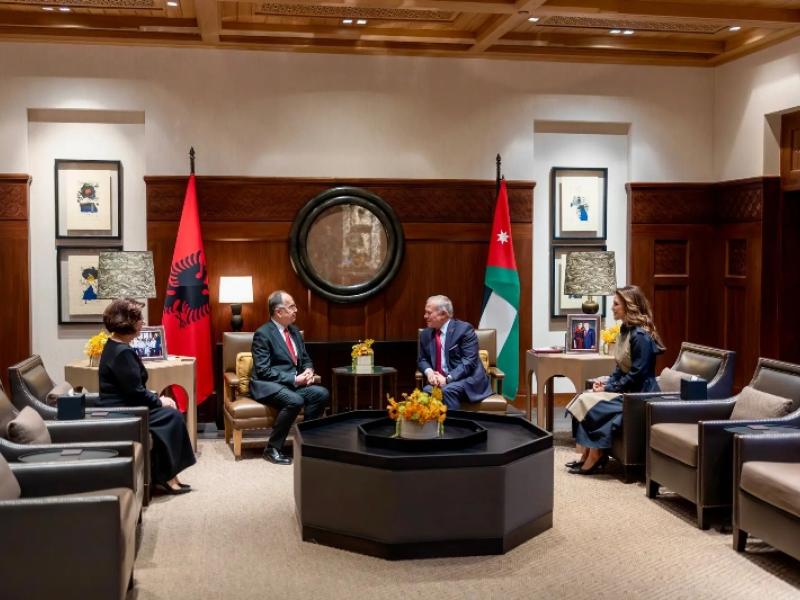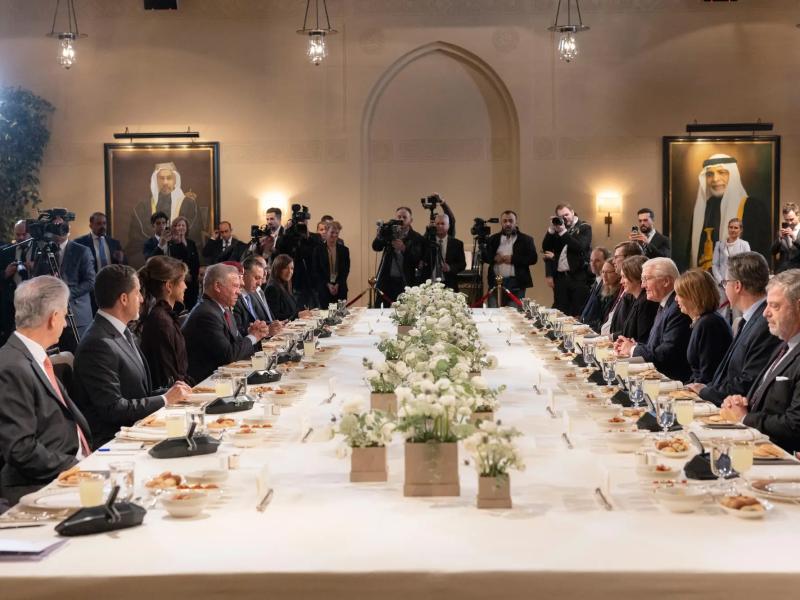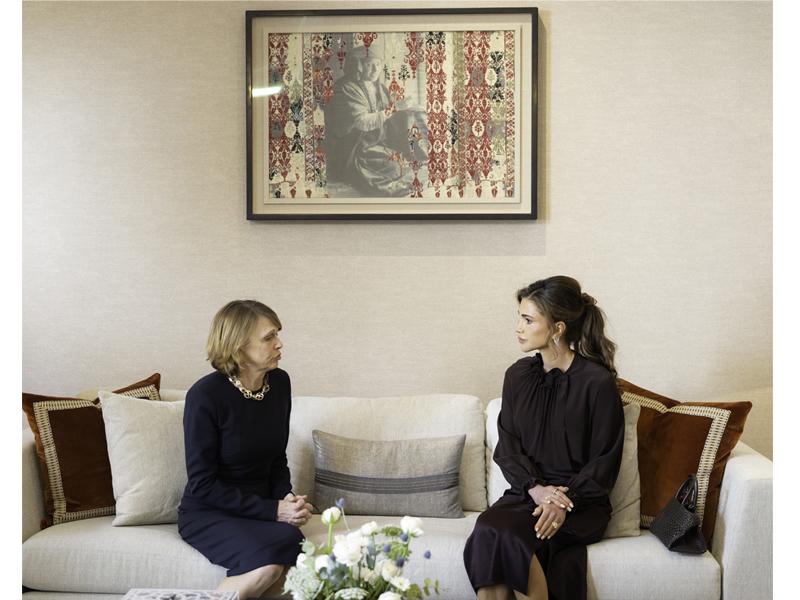(Office of Her Majesty, Press Department – Amman) The media has a crucial role in advocating and advancing issues related to childhood, Her Majesty Queen Rania said Tuesday, stressing that it should be instrumental in assisting the development of issues related to children and their care.
"It is important to underscore the essential role of the media, which should extend beyond the sector's traditional domain of raising social awareness of the significance of childhood issues, to embrace and advocate these issues at all levels," said the Queen, during the regional launch of UNICEF's State of the World's Children 2001 Report.
"This will [assist in] creating a suitable environment for the sustainability and advancement of childhood development projects," said Queen Rania, who recently joined world leaders in heading UNICEF's Global Movement for Children.
This year's State of the World's Children report states that early childhood care and development is the only way to break the cycle of inter-generational poverty.
Stating that much has been accomplished by the countries of the region since the convening of the 1990 World Summit for Children, the Queen said that "we now have to define our goals for the next decade. Early childhood development should be the principal theme of these goals, and part of a comprehensive vision that realises the hopes and aspirations of children."
Queen Rania heads the National Team for Early Childhood Development, which has just completed a draft national strategy to tackle the issue across the Kingdom. In its annual assessment of the well-being of children - The State of The WorldÕs Children 2001 - UNICEF urged world leaders and governments to focus on early childhood care and development, emphasising the crucial part that the first three years of a child's life play in overall human development.
The report makes four key points:
1) Early childhood care is a human rights issue.
2) Early childhood care is grounded in sound science and practical experience.
3) Early childhood care is a solid investment.
4) Three major challenges loom: poverty, conflict and HIV/AIDS.
"Meetings are now being planned with civil society organisations, experts and intellectuals, media and high level representatives from governments and heads of state," said Dr. Ibrahima Fall, UNICEF Regional Director for the Middle East and North Africa, during the launching ceremony.
"All this, we hope, will lead in 2001 to a Regional Plan of Action for children, a concrete plan that will provide us with markers and milestones on the road towards achieving a better life for all children in the Middle East and North Africa Region," continued Dr. Fall.
The regional launch was preceded by the Regional Workshop on Comprehensive Early Childhood Care and Development (ECCD) Conference, December 5- 12, 2000. More than 90 experts from 15 Arab Countries, in addition to experts from two other UNICEF regions came together to discuss new concepts on early childhood care and development for those implementing ECCD programs.
The conference recommendations, which were presented at The State of the World's Children 2001 regional launch, focused on the following: the need to document the benefits of Early Childhood Care and Development; the effect of new research on early childhood learning; family based health practices; the role played by gender in comprehensive ECCD; comprehensive ECCD and the needs of young children in emergencies, the need to give priority to comprehensive ECCD national development plans, and the need to emphasise and strengthen care giving at the family and community levels.
UNICEF Representative to Jordan, Misrak Elias, also announced the release of a special document, published to mark the occasion of the regional launch. The publication entitled Early Childhood Development in Jordan: The Formation of a Mosaic Image, outlines Jordan's experience, challenges and future vision in Early Childhood Development. "It is UNICEF's hope that through this publication a greater understanding will be gained not only of current achievements, but also of future challenges in meeting children's rights, beginning with a good start in life," Elias said.
UNICEF says $80 billion per year is needed to give every new-born in the world a good start in life.


